Complete Works of Edgar Allan Poe (Illustrated)
THE COMPLETE WORKS OF
EDGAR ALLAN POE
(1809-1849)
Contents
The Poetry
THE COMPLETE POEMS IN CHRONOLOGICAL ORDER
THE COMPLETE POEMS IN ALPHABETICAL ORDER
The Tales
THE COMPLETE TALES IN CHRONOLOGICAL ORDER
THE COMPLETE TALES IN ALPHABETICAL ORDER
The Novels
THE NARRATIVE OF ARTHUR GORDON PYM OF NANTUCKET
THE JOURNAL OF JULIUS RODMAN
The Play
POLITIAN
The Essays
INDEX OF THE COMPLETE ESSAYS
The Literary Criticism
THE LITERATI
MARGINALIA
FIFTY SUGGESTIONS
A CHAPTER ON AUTOGRAPHY
The Letters
INDEX OF CORRESPONDENTS
INDEX OF CORRESPONDENTS, LETTERS AND DATES
The Criticism
EDGAR A. POE by James Russell Lowell.
AN EXTRACT FROM ‘FIGURES OF SEVERAL CENTURIES’ by Arthur Symons
AN EXTRACT FROM ‘LETTERS TO DEAD AUTHORS’ by Andrew Lang
THE CENTENARY OF EDGAR ALLAN POE by Edmund Goose
FROM POE TO VALÉRY by T.S. Eliot
The Biographies
THE STORY OF EDGAR ALLAN POE by Sherwin Cody
THE DREAMER by Mary Newton Stanard
MEMOIR OF THE AUTHOR by Rufus Wilmot Griswold
DEATH OF EDGAR A. POE. by N. P. Willis

Delphi Classics 2011
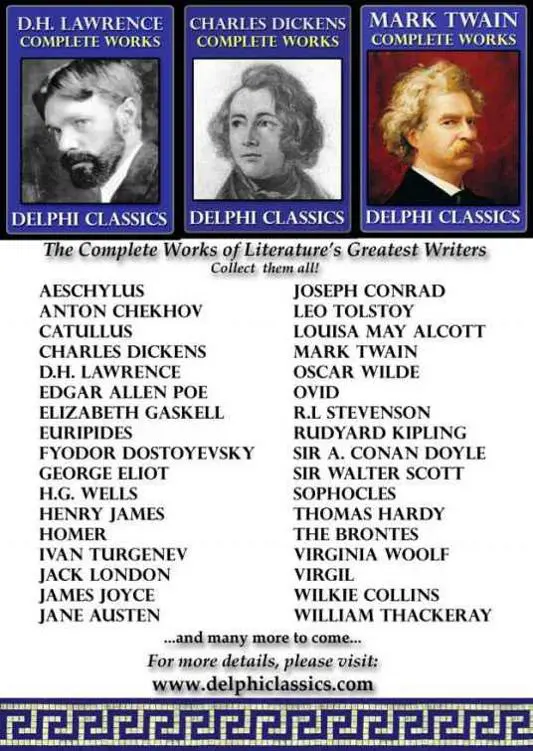
THE COMPLETE WORKS OF
EDGAR ALLAN POE
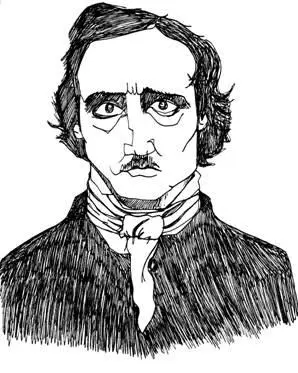
The Poetry
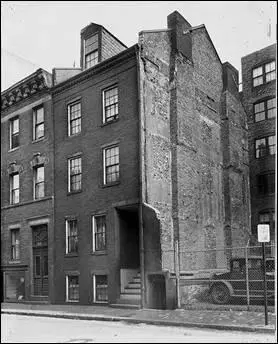
Edgar Allan Poe's Birthplace, Carver Street, Boston
THE COMPLETE POEMS IN CHRONOLOGICAL ORDER
POETRY
O, TEMPORA! O, MORES!
TAMERLANE
TO ——
TO ——
TO THE RIVER——
SONG
SPIRITS OF THE DEAD
A DREAM
ROMANCE
FAIRY-LAND
THE LAKE —— TO——
EVENING STAR
THE HAPPIEST DAY
IMITATION
HYMN TO ARISTOGEITON AND HARMODIUS
DREAMS
IN YOUTH I HAVE KNOWN ONE
STANZAS
TO MARGARET
ALONE
TO ISAAC LEA
SONNET—TO SCIENCE
AL AARAAF
AN ACROSTIC
ELIZABETH
THE VALLEY OF UNREST
ISRAFEL
LENORE
A PAEAN
THE SLEEPER
THE CITY IN THE SEA
BRIDAL BALLAD
TO ONE IN PARADISE
THE COLISEUM
THE HAUNTED PALACE.
THE CONQUEROR WORM.
SILENCE
DREAM-LAND
HYMN
TO ZANTE
SCENES FROM "POLITIAN"
FANNY
SERENADE
TO F——S S. O——D
TO ELIZABETH
MAY QUEEN ODE
SPIRITUAL SONG
LATIN HYMN
LINES ON JOE LOCKE
A CAMPAIGN SONG
FOR ANNIE
TO F——
TO FRANCES S. OSGOOD
TO MARIE LOUISE (SHEW)
TO MARIE LOUISE (SHEW)
DREAM LAND
IMPROMPTU. TO KATE CAROL
EULALIE
EPIGRAM FOR WALL STREET
THE RAVEN
THE DIVINE RIGHT OF KINGS
A VALENTINE
THE BELOVED PHYSICIAN
DEEP IN EARTH
ULALUME
LINES ON ALE
TO HELEN
AN ENIGMA
A DREAM WITHIN A DREAM
ELDORADO
ANNABEL LEE
TO MY MOTHER
THE BELLS
TO ISADORE
THE VILLAGE STREET
THE FOREST REVERIE
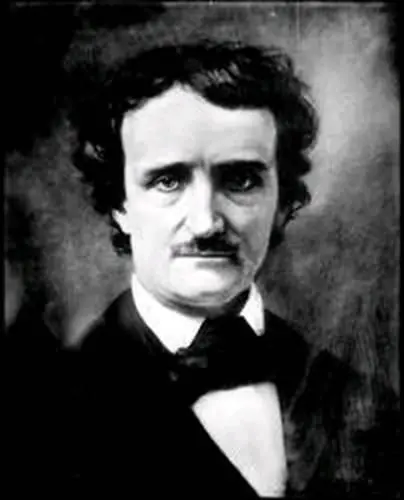
THE COMPLETE POEMS IN ALPHABETICAL ORDER
A CAMPAIGN SONG
A DREAM
A DREAM WITHIN A DREAM
A PAEAN
A VALENTINE
AL AARAAF
ALONE
AN ACROSTIC
AN ENIGMA
ANNABEL LEE
BRIDAL BALLAD
DEEP IN EARTH
DREAM LAND
DREAM-LAND
DREAMS
ELDORADO
ELIZABETH
EPIGRAM FOR WALL STREET
EULALIE
EVENING STAR
FAIRY-LAND
FANNY
FOR ANNIE
HYMN
HYMN TO ARISTOGEITON AND HARMODIUS
IMITATION
IMPROMPTU. TO KATE CAROL
IN YOUTH I HAVE KNOWN ONE
ISRAFEL
LATIN HYMN
LENORE
LINES ON ALE
LINES ON JOE LOCKE
MAY QUEEN ODE
O, TEMPORA! O, MORES!
POETRY
ROMANCE
SCENES FROM "POLITIAN"
SERENADE
SILENCE
SONG
SONNET—TO SCIENCE
SPIRITS OF THE DEAD
SPIRITUAL SONG
STANZAS
TAMERLANE
THE BELLS
THE BELOVED PHYSICIAN
THE CITY IN THE SEA
THE COLISEUM
THE CONQUEROR WORM.
THE DIVINE RIGHT OF KINGS
THE FOREST REVERIE
THE HAPPIEST DAY
THE HAUNTED PALACE.
THE LAKE —— TO——
THE RAVEN
THE SLEEPER
THE VALLEY OF UNREST
THE VILLAGE STREET
TO ——
TO ——
TO ELIZABETH
TO F——
TO FRANCES S. OSGOOD
TO F——S S. O——D
TO HELEN
TO ISAAC LEA
TO ISADORE
TO MARGARET
TO MARIE LOUISE (SHEW)
TO MARIE LOUISE (SHEW)
TO MY MOTHER
TO ONE IN PARADISE
TO THE RIVER——
TO ZANTE
ULALUME
POETRY
This is the earliest surviving poem in Poe's hand. It is written on the same page as some financial records for John Allan's business. These notes were filed among the Ellis & Allan papers for November 1824. John Allan was the young Edgar's foster-father.
Last night, with many cares and toils oppress'd
Weary, I laid me on a couch to rest —

Poe as a child
O, TEMPORA! O, MORES!
For the argument in favor of accepting this poem as by Poe, refer to Jay B. Hubbell, "'O, Tempora! O, Mores!' A Juvenile Poem by Edgar Allan Poe," Elizabethan Studies and Other Essays in Honor of George F. Reynolds, University of Colorado Studies, series B, Studies in the Humanities, vol. 2, no. 4 pp. 314-321.
O, Times! O, Manners! It is my opinion
That you are changing sadly your dominion —
I mean the reign of manners hath long ceased,
For men have none at all, or bad at least;
And as for times, altho' 'tis said by many
The "good old times" were far the worst of any,
Of which sound doctrine l believe each tittle,
Yet still I think these worse than them a little.
I've been a thinking — isn't that the phrase? —
I like your Yankee words and Yankee ways —
I've been a thinking, whether it were best
To take things seriously, or all in jest;
Whether, with grim Heraclitus of yore,
To weep, as he did, till his eyes were sore,
Or rather laugh with him, that queer philosopher,
Democritus of Thrace, who used to toss over
The page of life and grin at the dog-ears,
As though he'd say, "Why, who the devil cares?"
This is a question which, oh heaven, withdraw
The luckless query from a member's claw!
Instead of two sides, Job [Bob] has nearly eight,
Each fit to furnish forth four hours debate.
What shall be done? I'll lay it on the table,
And take the matter up when I'm more able,
And, in the meantime, to prevent all bother,
I'll neither laugh with one, nor cry with t'other,
Nor deal in flatt'ry or aspersions foul,
But, taking one by each hand, merely growl.
Ah, growl, say you, my friend, and pray at what?
Why, really, sir, I almost had forgot —
But, damn it, sir, I deem it a disgrace
That things should stare us boldly in the face,
And daily strut the street with bows and scrapes,
Who would be men by imitating apes.
I beg your pardon, reader, for the oath
The monkeys make me swear, though something loth;
I'm apt to be discursive in my style,
But pray be patient; yet a little while
Will change me, and as politicians do,
I'll mend my manners and my measures too.
Of all the cities — and I've seen no few;
For I have travelled, friend, as well as you —
I don't remember one, upon my soul,
But take it generally upon the whole,
(As members say they like their logick [logic] taken,
Because divided, it may chance be shaken)
So pat, agreeable and vastly proper
As this for a neat, frisky counter-hopper;
Here he may revel to his heart's content,
Flounce like a fish in his own element,
Toss back his fine curls from their forehead fair,
And hop o'er counters with a Vester's air,
Complete at night what he began A.M.,
And having cheated ladies, dance with them;
For, at a ball, what fair one can escape
The pretty little hand that sold her tape,
Or who so cold, so callous to refuse
The youth who cut the ribbon for her shoes!
One of these fish, par excellence the beau —
God help me! — it has been my lot to know,
At least by sight, for I'm a timid man,
And always keep from laughing, if I can;
But speak to him, he'll make you such grimace,
Lord! to be grave exceeds the power of face.
The hearts of all the ladies are with him,
Their bright eyes on his Tom and Jerry brim
And dove-tailed coat, obtained at cost; while then
Those eyes won't turn on anything like men.
His very voice is musical delight,
His form, once seen, becomes a part of sight;
In short, his shirt collar, his look, his tone is
The "beau ideal" fancied for Adonis.
Philosophers have often held dispute
As to the seat of thought in man and brute;
For that the power of thought attends the latter
My friend, the beau, hath made a settled matter,
And spite of all dogmas, current in all ages,
One settled fact is better than ten sages.
For he does think, though I am oft in doubt
If I can tell exactly what about.
Ah, yes! his little foot and ankle trim,
'Tis there the seat of reason lies in him,
A wise philosopher would shake his head,
He then, of course, must shake his foot instead.
At me, in vengeance, shall that foot be shaken —
Another proof of thought, I'm not mistaken —
Because to his cat's eyes I hold a glass,
And let him see himself, a proper ass!
I think he'll take this likeness to himself,
But if he won't, he shall, a stupid elf,
And, lest the guessing throw the fool in fits,
I close the portrait with the name of PITTS.
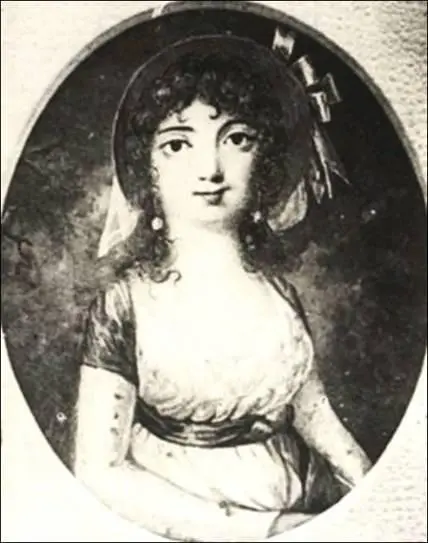
Poe's mother
TAMERLANE
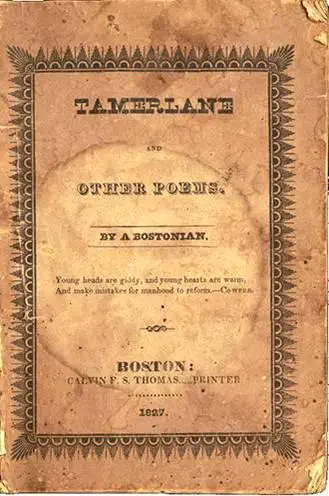
The very rare first edition cover of Poe’s first book of poetry
TAMERLANE
KIND solace in a dying hour!
Such, father, is not (now) my theme—
I will not madly deem that power
Of Earth may shrive me of the sin
Unearthly pride hath revell'd in—
I have no time to dote or dream:
You call it hope—that fire of fire!
It is but agony of desire:
If I can hope—Oh God! I can—
Its fount is holier—more divine—
I would not call thee fool, old man,
But such is not a gift of thine.
Know thou the secret of a spirit
Bow'd from its wild pride into shame.
O! yearning heart! I did inherit
Thy withering portion with the fame,
The searing glory which hath shone
Amid the jewels of my throne,
Halo of Hell! and with a pain
Not Hell shall make me fear again—
O! craving heart, for the lost flowers
And sunshine of my summer hours!
Th' undying voice of that dead time,
With its interminable chime,
Rings, in the spirit of a spell,
Upon thy emptiness—a knell.
I have not always been as now:
The fever'd diadem on my brow
I claim'd and won usurpingly—
Hath not the same fierce heirdom given
Rome to the Caesar—this to me?
The heritage of a kingly mind,
And a proud spirit which hath striven
Triumphantly with human kind.
On mountain soil I first drew life:
The mists of the Taglay have shed
Nightly their dews upon my head,
And, I believe, the winged strife
And tumult of the headlong air
Have nestled in my very hair.
So late from Heaven—that dew—it fell
(Mid dreams of an unholy night)
Upon me—with the touch of Hell,
While the red flashing of the light
From clouds that hung, like banners, o'er,
Appeared to my half-closing eye
The pageantry of monarchy,
And the deep trumpet-thunder's roar
Came hurriedly upon me, telling
Of human battle, where my voice,
My own voice, silly child!—was swelling
(O! how my spirit would rejoice,
And leap within me at the cry)
The battle-cry of Victory!
The rain came down upon my head
Unshelter'd—and the heavy wind
Was giantlike—so thou, my mind!—
It was but man, I thought, who shed
Laurels upon me: and the rush—
The torrent of the chilly air
Gurgled within my ear the crush
Of empires—with the captive's prayer—
The hum of suiters—and the tone
Of flattery 'round a sovereign's throne.
My passions, from that hapless hour,
Usurp'd a tyranny which men
Have deem'd, since I have reach'd to power;
My innate nature—be it so:
But, father, there liv'd one who, then,
Then—in my boyhood—when their fire
Burn'd with a still intenser glow,
(For passion must, with youth, expire)
E'en then who knew this iron heart
In woman's weakness had a part.
I have no words—alas!—to tell
The loveliness of loving well!
Nor would I now attempt to trace
The more than beauty of a face
Whose lineaments, upon my mind,
Are—shadows on th' unstable wind:
Thus I remember having dwelt
Some page of early lore upon,
With loitering eye, till I have felt
The letters—with their meaning—melt
To fantasies—with none.
O, she was worthy of all love!
Love—as in infancy was mine—
'Twas such as angel minds above
Might envy; her young heart the shrine
On which my ev'ry hope and thought
Were incense—then a goodly gift,
For they were childish—and upright—
Pure—as her young example taught:
Why did I leave it, and, adrift,
Trust to the fire within, for light?
We grew in age—and love—together,
Roaming the forest, and the wild;
My breast her shield in wintry weather—
And, when the friendly sunshine smil'd,
And she would mark the opening skies,
I saw no Heaven—but in her eyes.
Young Love's first lesson is—the heart:
For 'mid that sunshine, and those smiles,
When, from our little cares apart,
And laughing at her girlish wiles,
I'd throw me on her throbbing breast,
And pour my spirit out in tears—
There was no need to speak the rest—
No need to quiet any fears
Of her—who ask'd no reason why,
But turn'd on me her quiet eye!
Yet more than worthy of the love
My spirit struggled with, and strove,
When, on the mountain peak, alone,
Ambition lent it a new tone—
I had no being—but in thee:
The world, and all it did contain
In the earth—the air—the sea—
Its joy—its little lot of pain
That was new pleasure—the ideal,
Dim, vanities of dreams by night—
And dimmer nothings which were real—
(Shadows—and a more shadowy light!)
Parted upon their misty wings,
And, so, confusedly, became
Thine image, and—a name—a name!
Two separate—yet most intimate things.
I was ambitious—have you known
The passion, father? You have not:
A cottager, I mark'd a throne
Of half the world as all my own,
And murmur'd at such lowly lot—
But, just like any other dream,
Upon the vapour of the dew
My own had past, did not the beam
Of beauty which did while it thro'
The minute—the hour—the day—oppress
My mind with double loveliness.
We walk'd together on the crown
Of a high mountain which look'd down
Afar from its proud natural towers
Of rock and forest, on the hills—
The dwindled hills! begirt with bowers
And shouting with a thousand rills.
I spoke to her of power and pride,
But mystically—in such guise
That she might deem it nought beside
The moment's converse; in her eyes
I read, perhaps too carelessly—
A mingled feeling with my own—
The flush on her bright cheek, to me
Seem'd to become a queenly throne
Too well that I should let it be
Light in the wilderness alone.
I wrapp'd myself in grandeur then,
And donn'd a visionary crown—
Yet it was not that Fantasy
Had thrown her mantle over me—
But that, among the rabble—men,
Lion ambition is chain'd down—
And crouches to a keeper's hand—
Not so in deserts where the grand
The wild—the terrible conspire
With their own breath to fan his fire.
Look 'round thee now on Samarcand!—
Is not she queen of Earth? her pride
Above all cities? in her hand
Their destinies? in all beside
Of glory which the world hath known
Stands she not nobly and alone?
Falling—her veriest stepping-stone
Shall form the pedestal of a throne—
And who her sovereign? Timour—he
Whom the astonished people saw
Striding o'er empires haughtily
A diadem'd outlaw—
O! human love! thou spirit given,
On Earth, of all we hope in Heaven!
Which fall'st into the soul like rain
Upon the Siroc wither'd plain,
And failing in thy power to bless
But leav'st the heart a wilderness!
Idea! which bindest life around
With music of so strange a sound
And beauty of so wild a birth—
Farewell! for I have won the Earth!
When Hope, the eagle that tower'd, could see
No cliff beyond him in the sky,
His pinions were bent droopingly—
And homeward turn'd his soften'd eye.
'Twas sunset: when the sun will part
There comes a sullenness of heart
To him who still would look upon
The glory of the summer sun.
That soul will hate the ev'ning mist,
So often lovely, and will list
To the sound of the coming darkness (known
To those whose spirits hearken) as one
Who, in a dream of night, would fly
But cannot from a danger nigh.
What tho' the moon—the white moon
Shed all the splendour of her noon,
Her smile is chilly—and her beam,
In that time of dreariness, will seem
(So like you gather in your breath)
A portrait taken after death.
And boyhood is a summer sun
Whose waning is the dreariest one—
For all we live to know is known,
And all we seek to keep hath flown—
Let life, then, as the day-flower, fall
With the noon-day beauty—which is all.
I reach'd my home—my home no more—
For all had flown who made it so—
I pass'd from out its mossy door,
And, tho' my tread was soft and low,
A voice came from the threshold stone
Of one whom I had earlier known—
O! I defy thee, Hell, to show
On beds of fire that burn below,
A humbler heart—a deeper wo—
Father, I firmly do believe—
I know—for Death, who comes for me
From regions of the blest afar,
Where there is nothing to deceive,
Hath left his iron gate ajar,
And rays of truth you cannot see
Are flashing thro' Eternity—
I do believe that Eblis hath
A snare in ev'ry human path—
Else how, when in the holy grove
I wandered of the idol, Love,
Who daily scents his snowy wings
With incense of burnt offerings
From the most unpolluted things,
Whose pleasant bowers are yet so riven
Above with trelliced rays from Heaven
No mote may shun—no tiniest fly
The light'ning of his eagle eye—
How was it that Ambition crept,
Unseen, amid the revels there,
Till growing bold, he laughed and leapt
In the tangles of Love's very hair?
1829.
TO ——
1
The bowers whereat, in dreams, I see
The wantonest singing birds
Are lips—and all thy melody
Of lip-begotten words—
2
Thine eyes, in Heaven of heart enshrin'd
Then desolately fall,
O! God! on my funereal mind
Like starlight on a pall—
3
Thy heart—thy heart!—I wake and sigh,
And sleep to dream till day
Of truth that gold can never buy—
Of the trifles that it may.
1829.
TO ——
I HEED not that my earthly lot
Hath-little of Earth in it—
That years of love have been forgot
In the hatred of a minute:—
I mourn not that the desolate
Are happier, sweet, than I,
But that you sorrow for my fate
Who am a passer-by.
1829.
TO THE RIVER——
FAIR river! in thy bright, clear flow
Of crystal, wandering water,
Thou art an emblem of the glow
Of beauty—the unhidden heart—
The playful maziness of art
In old Alberto's daughter;
But when within thy wave she looks—
Which glistens then, and trembles—
Why, then, the prettiest of brooks
Her worshipper resembles;
For in my heart, as in thy stream,
Her image deeply lies—
His heart which trembles at the beam
Of her soul-searching eyes.
1829.
SONG
I SAW thee on thy bridal day—
When a burning blush came o'er thee,
Though happiness around thee lay,
The world all love before thee:
And in thine eye a kindling light
(Whatever it might be)
Was all on Earth my aching sight
Of Loveliness could see.
That blush, perhaps, was maiden shame—
As such it well may pass—
Though its glow hath raised a fiercer flame
In the breast of him, alas!
Who saw thee on that bridal day,
When that deep blush would come o'er thee,
Though happiness around thee lay,
The world all love before thee.
1827.
SPIRITS OF THE DEAD
1
Thy soul shall find itself alone
'Mid dark thoughts of the grey tomb-stone—
Not one, of all the crowd, to pry
Into thine hour of secrecy:
2
Be silent in that solitude
Which is not loneliness—for then
The spirits of the dead who stood
In life before thee are again
In death around thee—and their will
Shall then overshadow thee: be still.
3
For the night—tho' clear—shall frown—
And the stars shall look not down,
From their high thrones in the Heaven,
With light like Hope to mortals given—
But their red orbs, without beam,
To thy weariness shall seem
As a burning and a fever
Which would cling to thee for ever:
4
Now are thoughts thou shalt not banish—
Now are visions ne'er to vanish—
From thy spirit shall they pass
No more—like dew-drop from the grass:
5
The breeze—the breath of God—is still—
And the mist upon the hill
Shadowy—shadowy—yet unbroken,
Is a symbol and a token—
How it hangs upon the trees,
A mystery of mysteries!—
1827.
A DREAM
In visions of the dark night
I have dreamed of joy departed—
But a waking dreams of life and light
Hath left me broken-hearted.
Ah! what is not a dream by day
To him whose eyes are cast
On things around him with a ray
Turned back upon the past?
That holy dream—that holy dream,
While all the world were chiding,
Hath cheered me as a lovely beam
A lonely spirit guiding.
What though that light, thro' storm and night,
So trembled from afar-
What could there be more purely bright
In Truths day-star?
1827.
ROMANCE
ROMANCE, who loves to nod and sing,
With drowsy head and folded wing,
Among the green leaves as they shake
Far down within some shadowy lake,
To me a painted paroquet
Hath been—a most familiar bird—
Taught me my alphabet to say—
To lisp my very earliest word
While in the wild wood I did lie,
A child—with a most knowing eye.
Of late, eternal Condor years
So shake the very Heaven on high
With tumult as they thunder by,
I have no time for idle cares
Through gazing on the unquiet sky.
And when an hour with calmer wings
Its down upon thy spirit flings—
That little time with lyre and rhyme
To while away—forbidden things!
My heart would feel to be a crime
Unless it trembled with the strings.
1829.
FAIRY-LAND
DIM vales—and shadowy floods—
And cloudy-looking woods,
Whose forms we can't discover
For the tears that drip all over
Huge moons there wax and wane—
Again—again—again—
Every moment of the night—
Forever changing places—
And they put out the star-light
With the breath from their pale faces.
About twelve by the moon-dial
One, more filmy than the rest
(A kind which, upon trial,
They have found to be the best)
Comes down—still down—and down
With its centre on the crown
Of a mountain's eminence,
While its wide circumference
In easy drapery falls
Over hamlets, over halls,
Wherever they may be—
O'er the strange woods—o'er the sea—
Over spirits on the wing—
Over every drowsy thing—
And buries them up quite
In a labyrinth of light—
And then, how deep!—O, deep!
Is the passion of their sleep.
In the morning they arise,
And their moony covering
Is soaring in the skies,
With the tempests as they toss,
Like—almost any thing—
Or a yellow Albatross.
They use that moon no more
For the same end as before—
Videlicet a tent—
Which I think extravagant:
Its atomies, however,
Into a shower dissever,
Of which those butterflies,
Of Earth, who seek the skies,
And so come down again
(Never-contented things!)
Have brought a specimen
Upon their quivering wings.
1831.
THE LAKE —— TO——
IN spring of youth it was my lot
To haunt of the wide earth a spot
The which I could not love the less—
So lovely was the loneliness
Of a wild lake, with black rock bound,
And the tall pines that tower'd around.
But when the Night had thrown her pall
Upon that spot, as upon all,
And the mystic wind went by
Murmuring in melody—
Then—ah then I would awake
To the terror of the lone lake.
Yet that terror was not fright,
But a tremulous delight—
A feeling not the jewelled mine
Could teach or bribe me to define—
Nor Love—although the Love were thine.
Death was in that poisonous wave,
And in its gulf a fitting grave
For him who thence could solace bring
To his lone imagining—
Whose solitary soul could make
An Eden of that dim lake.
1827.
EVENING STAR
'TWAS noontide of summer,
And midtime of night,
And stars, in their orbits,
Shone pale, through the light
Of the brighter, cold moon.
'Mid planets her slaves,
Herself in the Heavens,
Her beam on the waves.
I gazed awhile
On her cold smile;
Too cold-too cold for me—
There passed, as a shroud,
A fleecy cloud,
And I turned away to thee,
Proud Evening Star,
In thy glory afar
And dearer thy beam shall be;
For joy to my heart
Is the proud part
Thou bearest in Heaven at night.,
And more I admire
Thy distant fire,
Than that colder, lowly light.
1827.
THE HAPPIEST DAY
I
THE happiest day-the happiest hour
My seared and blighted heart hath known,
The highest hope of pride and power,
I feel hath flown.
Of power! said I? Yes! such I ween
But they have vanished long, alas!
The visions of my youth have been
But let them pass.
III
And pride, what have I now with thee?
Another brow may ev'n inherit
The venom thou hast poured on me
Be still my spirit!
IV
The happiest day-the happiest hour
Mine eyes shall see-have ever seen
The brightest glance of pride and power
I feet have been:
V
But were that hope of pride and power
Now offered with the pain
Ev'n then I felt-that brightest hour
I would not live again:
VI
For on its wing was dark alloy
And as it fluttered-fell
An essence-powerful to destroy
A soul that knew it well.
1827.
IMITATION
A dark unfathom'd tide
Of interminable pride—
A mystery, and a dream,
Should my early life seem;
I say that dream was fraught
With a wild, and waking thought
Of beings that have been,
Which my spirit hath not seen,
Had I let them pass me by,
With a dreaming eye!
Let none of earth inherit
That vision on my spirit;
Those thoughts I would control
As a spell upon his soul:
For that bright hope at last
And that light time have past,
And my worldly rest hath gone
With a sigh as it pass'd on
I care not tho' it perish
With a thought I then did cherish.
1827.
HYMN TO ARISTOGEITON AND HARMODIUS
Translation from the Greek
I
WREATHED in myrtle, my sword I'll conceal
Like those champions devoted and brave,
When they plunged in the tyrant their steel,
And to Athens deliverance gave.
II
Beloved heroes! your deathless souls roam
In the joy breathing isles of the blest;
Where the mighty of old have their home
Where Achilles and Diomed rest
III
In fresh myrtle my blade I'll entwine,
Like Harmodius, the gallant and good,
When he made at the tutelar shrine
A libation of Tyranny's blood.
IV
Ye deliverers of
Athens from shame!
Ye avengers of Liberty's wrongs!
Endless ages shall cherish your fame,
Embalmed in their echoing songs!
1827.
DREAMS
Oh! that my young life were a lasting dream!
My spirit not awak'ning, till the beam
Of an Eternity should bring the morrow:
Yes! tho' that long dream were of hopeless sorrow,
'Twere better than the dull reality
Of waking life to him whose heart shall be,
And hath been ever, on the chilly earth,
A chaos of deep passion from his birth!
But should it be—that dream eternally
Continuing—as dreams have been to me
In my young boyhood—should it thus be given,
'Twere folly still to hope for higher Heaven!
For I have revell'd, when the sun was bright
In the summer sky; in dreamy fields of light,
And left unheedingly my very heart
In climes of mine imagining—apart
From mine own home, with beings that have been
Of mine own thought—what more could I have seen?
'Twas once & only once & the wild hour
From my rememberance shall not pass—some power
Or spell had bound me—'twas the chilly wind
Came o'er me in the night & left behind
Its image on my spirit, or the moon
Shone on my slumbers in her lofty noon
Too coldly—or the stars—howe'er it was
That dream was as that night wind—let it pass.
I have been happy—tho' but in a dream
I have been happy—& I love the theme—
Dreams! in their vivid colouring of life—
As in that fleeting, shadowy, misty strife
Of semblance with reality which brings
To the delirious eye more lovely things
Of Paradise & Love—& all our own!
Than young Hope in his sunniest hour hath known.
{From an earlier MS. Than in the book—ED.}
IN YOUTH I HAVE KNOWN ONE
OR
STANZAS
How often we forget all time, when lone
Admiring Nature's universal throne;
Her woods—her wilds—her mountains-the intense
Reply of Hers to Our intelligence!
Byron
I
IN youth I have known one with whom the Earth
In secret communing held-as he with it,
In daylight, and in beauty, from his birth:
Whose fervid, flickering torch of life was lit
From the sun and stars, whence he had drawn forth
A passionate light such for his spirit was fit
And yet that spirit knew-not in the hour
Of its own fervor-what had o'er it power.
II
Perhaps it may be that my mind is wrought
To a fever* by the moonbeam that hangs o'er,
But I will half believe that wild light fraught
With more of sovereignty than ancient lore
Hath ever told-or is it of a thought
The unembodied essence, and no more
That with a quickening spell doth o'er us pass
As dew of the night-time, o'er the summer grass?
III
Doth o'er us pass, when, as th' expanding eye
To the loved object-so the tear to the lid
Will start, which lately slept in apathy?
And yet it need not be—(that object) hid
From us in life-but common-which doth lie
Each hour before us—but then only bid
With a strange sound, as of a harp-string broken
T' awake us—'Tis a symbol and a token
IV
Of what in other worlds shall be—and given
In beauty by our God, to those alone
Who otherwise would fall from life and Heaven
Drawn by their heart's passion, and that tone,
That high tone of the spirit which hath striven
Though not with Faith-with godliness—whose throne
With desperate energy 't hath beaten down;
Wearing its own deep feeling as a crown.
* Query "fervor"?—ED.
A PÆAN.
I.
How shall the burial rite be read?
The solemn song be sung?
The requiem for the loveliest dead,
That ever died so young?
II.
Her friends are gazing on her,
And on her gaudy bier,
And weep!—oh! to dishonor
Dead beauty with a tear!
III.
They loved her for her wealth—
And they hated her for her pride—
But she grew in feeble health,
And they love her—that she died.
IV.
They tell me (while they speak
Of her "costly broider'd pall")
That my voice is growing weak—
That I should not sing at all—
V.
Or that my tone should be
Tun'd to such solemn song
So mournfully—so mournfully,
That the dead may feel no wrong.
VI.
But she is gone above,
With young Hope at her side,
And I am drunk with love
Of the dead, who is my bride.—
VII.
Of the dead—dead who lies
All perfum'd there,
With the death upon her eyes,
And the life upon her hair.
VIII.
Thus on the coffin loud and long
I strike—the murmur sent
Through the grey chambers to my song,
Shall be the accompaniment.
IX.
Thou died'st in thy life's June—
But thou did'st not die too fair:
Thou did'st not die too soon,
Nor with too calm an air.
X.
From more than fiends on earth,
Thy life and love are riven,
To join the untainted mirth
Of more than thrones in heaven—
XII.
Therefore, to thee this night
I will no requiem raise,
But waft thee on thy flight,
With a Pæan of old days.
TO MARGARET
This may be an unfinished poem, never published in Poe's lifetime.
1 comment